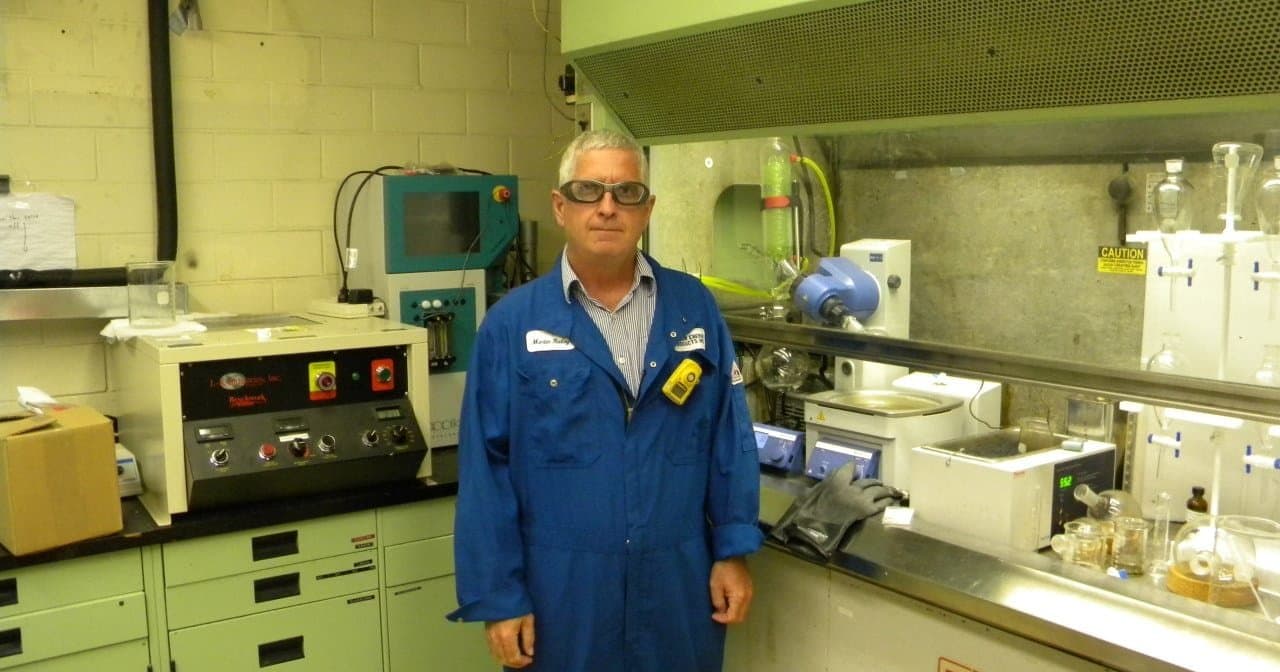Dr. Martin Flatley, a senior project manager at our Sarnia refinery, has partnered with researchers from Western University to develop, test and apply for government approval of COVID-19 testing kits.
Building on an existing relationship with Western, Chilwell has reallocated funding, equipment and expertise from wastewater treatment research in hopes of developing a fast and affordable COVID-19 test kit.
Here’s how it works.
“Whether we’re sequencing DNA strands that are human, bacteria, or virus, it’s all the same,” says Dr. Flatley. “We’ve been using software and hardware to sequence the genes in bacteria that produce proteins to break down material such as napthenic acids found in our waste water treatment system. Therefore, we can theoretically do the same to identify genes in algae that can be used to produce proteins from COVID-19 samples to use in a test kit for antibodies.”
Prior to the pandemic, Chilwell worked with Western to look at ways to break down contaminants from byproduct in our wastewater treatment process. Our tests are unique because we use algae as a testing reagent to identify the bacteria. As it turns out, algae can also be used to determine if someone has been infected or carries antibodies to the COVID-19 virus.
“We already had the equipment, expertise, and access to Western University’s bio-safety lab, so thought we could use what we had developed to help fight COVID-19,” says Dr. Flatley. “The Mitacs funding has enabled the team to speed up the production process with the testing of the kits expected in a few months.”
Mitacs, a not-for-profit organization that fosters growth and innovation in Canada by solving business challenges with research solutions from academic institutions, is furthering the effort by providing matching funding. Like many federal organizations, Mitacs is helping Canadian companies to develop innovative solutions to support Canada’s COVID-19 response.
“It’s a great feeling knowing that we’re able to repurpose our work to support our communities in these unprecedented times,” adds Dr. Flatley.




